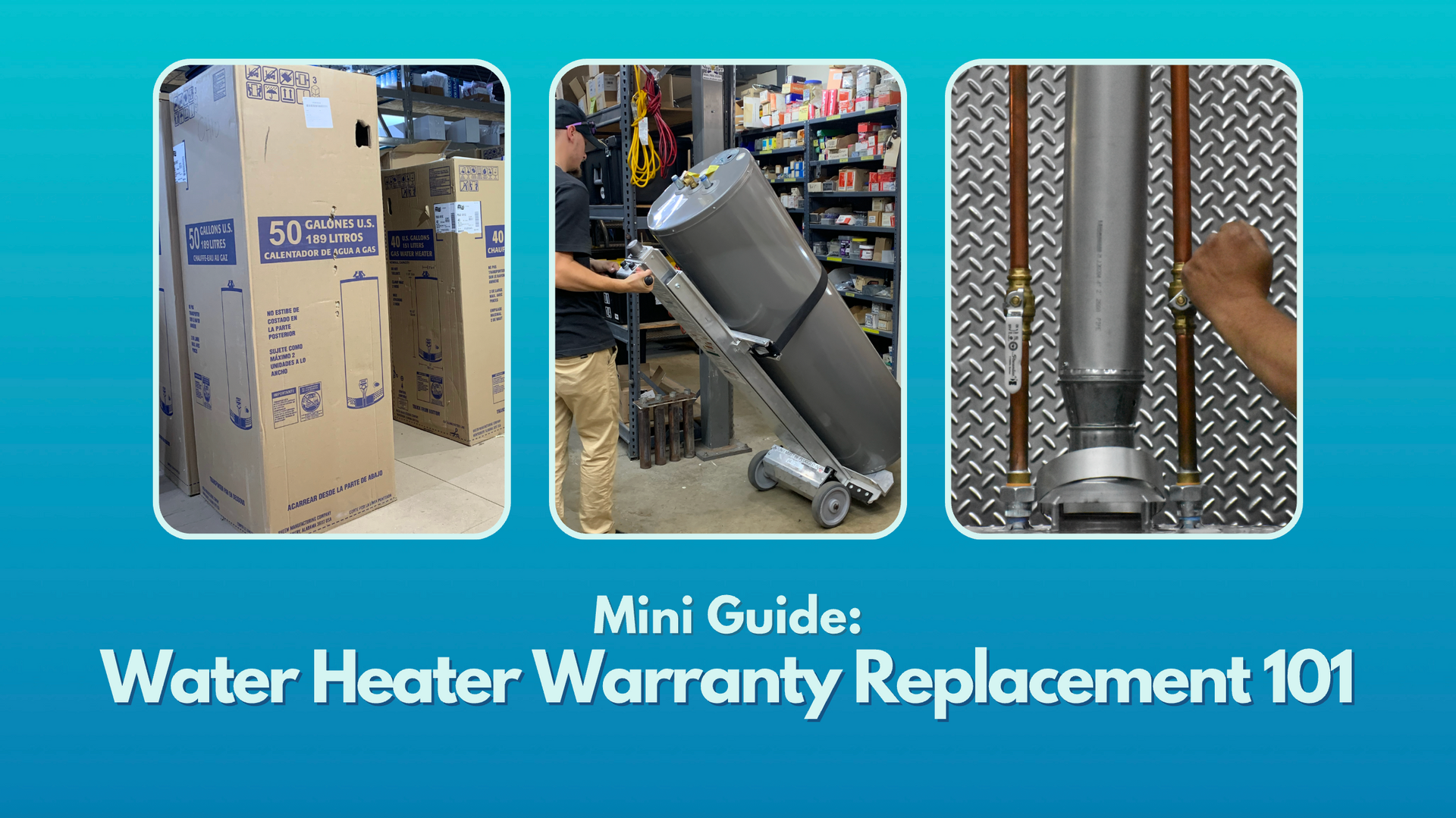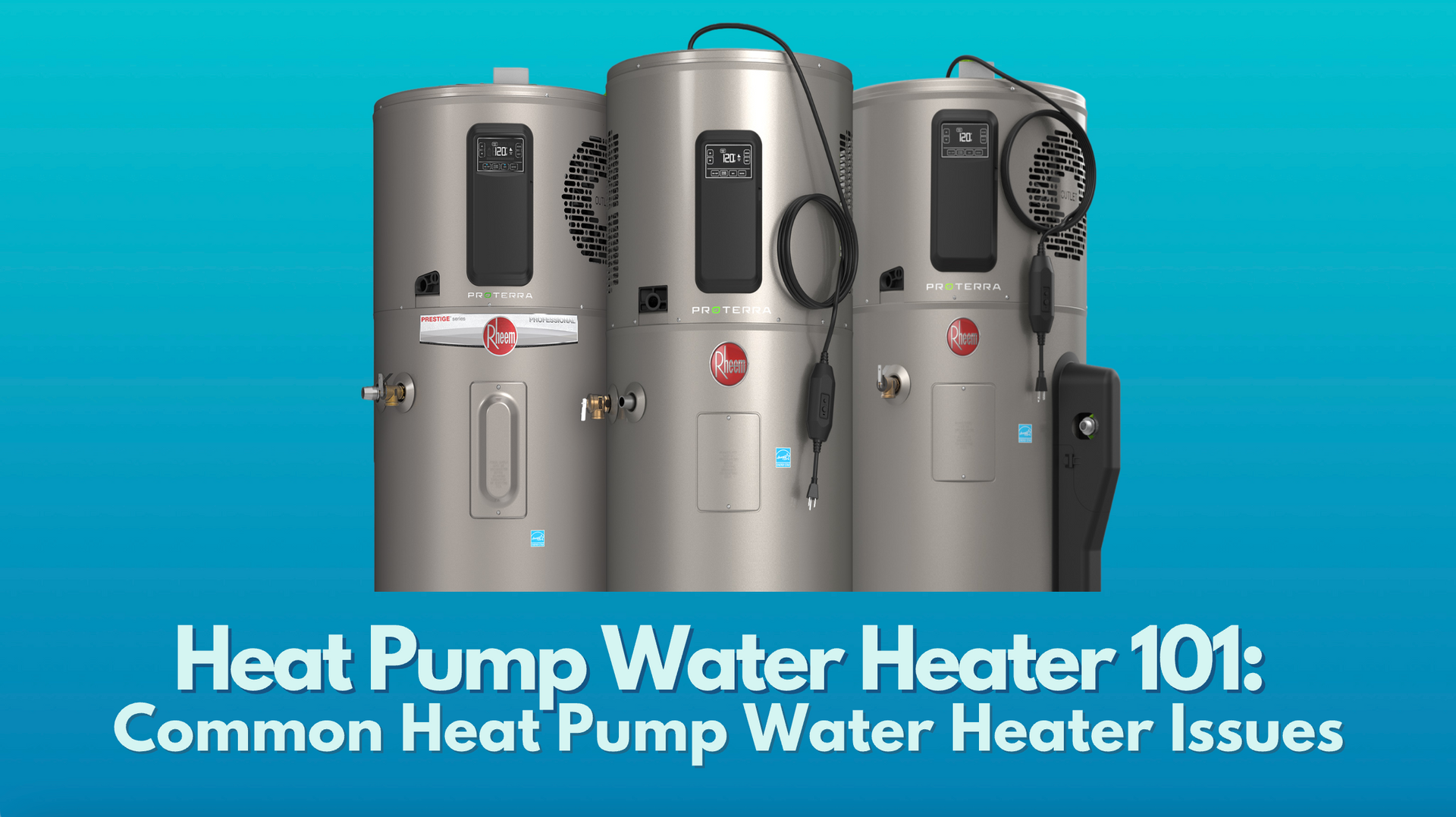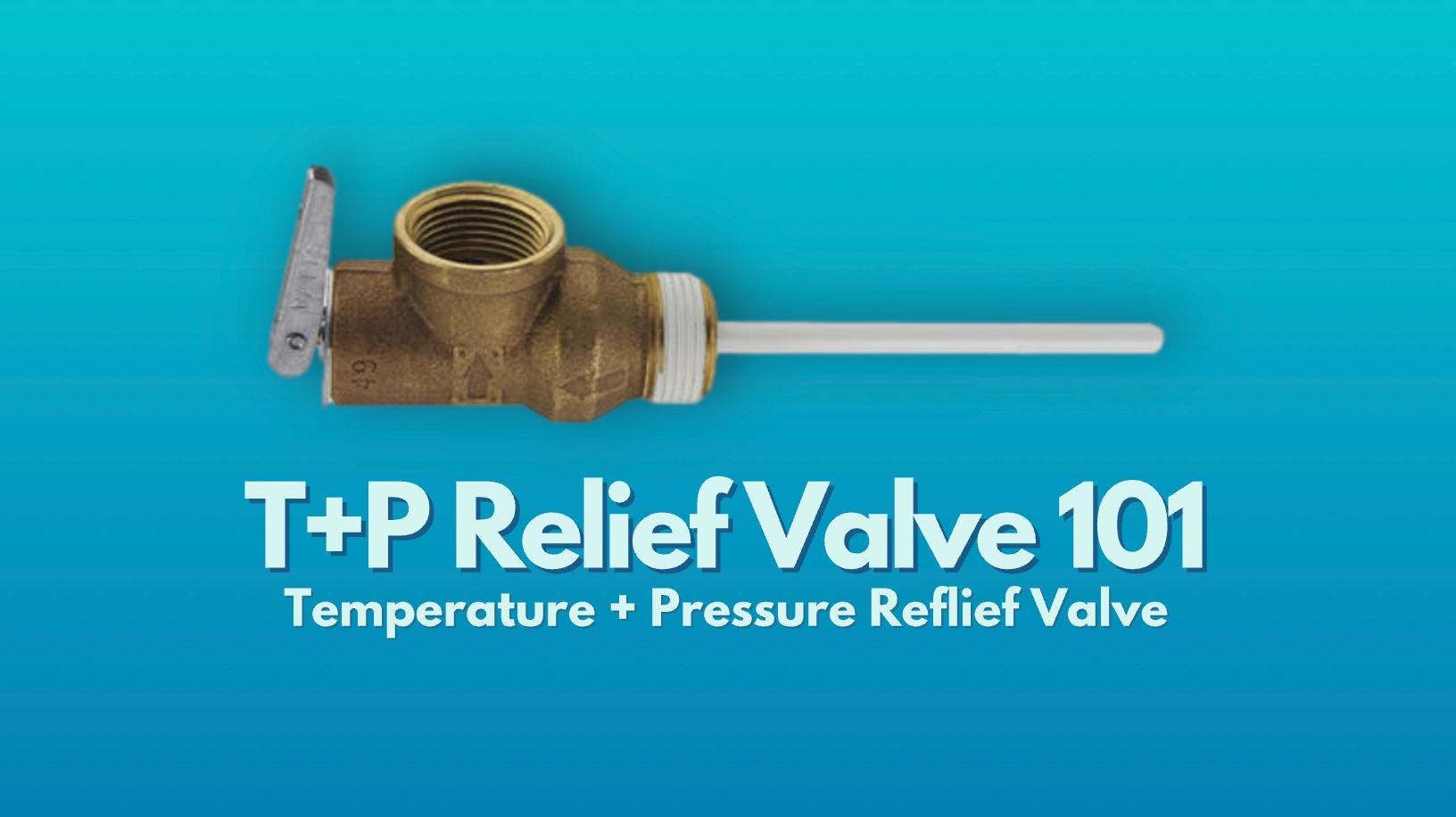Guide to Water Heater Efficiency
Should I Get a Water Heater Repair or Replace the Whole Water Heater?
A family of 4 typically spends $200 a year to heat their water with a natural gas water heater and $450 a year to heat water with an electric water heater. The amount varies based on usage and the efficiency rating of the water heater. Homeowners can save themselves a lot of money by choosing a water heater with a high efficiency rating.
In this article, we will explain everything you need to know about water heater energy efficiency as well as how to keep your water heating costs down.
How Do We Determine Water Heater Efficiency?
Old water heaters received an Energy Factor (EF) rating to determine efficiency. The higher the EF, the more efficient the unit.
After June 12, 2017, manufacturers switched to the
Uniform Energy Factor (UEF) for increased accuracy and consistency. SImilar to the old system, the higher the UEF, the more efficient the hot water heater. In this article, we will use the modern UEF rating.
In order to determine a unit’s UEF, the unit is placed into one of four categories or
“bins”:
- Very small
- First Hour Rating (FHR): < 18 gallons (tank)
- Gallons Per Minute (GPM): < 1.7 (tankless)
- Low
- First Hour Rating (FHR): 18 - 51 gallons (tank)
- Gallons Per Minute (GPM): 1.7 - 2.8 (tankless)
- Medium
- First Hour Rating (FHR): 51 - 75 gallons (tank)
- Gallons Per Minute (GPM): 2.8 - 4 (tankless)
- High
- First Hour Rating (FHR): > 75 gallons (tank)
- Gallons Per Minute (GPM): > 4 (tankless)
You can only accurately compare UEF ratings between two water heaters in the same bin.
UEF measures FHR with a 125°F outlet water temperature. UEF measures GPM assuming a temperature rise of 67°F.
What Is an Energy Efficient Water Heater?
You can trust tankless water heaters, heat pump water heaters, and solar water heaters to operate efficiently with heat pump water heaters and solar water heaters producing the best results. If you see the Energy Star sticker on the product, you can rest assured that the unit meets specific criteria regarding efficiency.
Tankless Water Heaters
Homeowners can choose from a variety of tankless water heaters:
- electric tankless water heater
- condensing gas tankless water heater
- non-condensing gas tankless water heater
Electric tankless water heaters offer consistently high efficiency. However, they don't produce hot water at the same rate as gas tankless water heaters.
Non-condensing gas tankless water heaters offer greater efficiency than most storage tank gas water heaters. Condensing gas tankless water heaters produce greater efficiency than non-condensing units as they use a second heat exchanger. Condensing units can reach efficiency levels as high as .96 UEF.
Ready to
upgrade to tankless? Get a quote from U.S. Water Heating Solutions today!
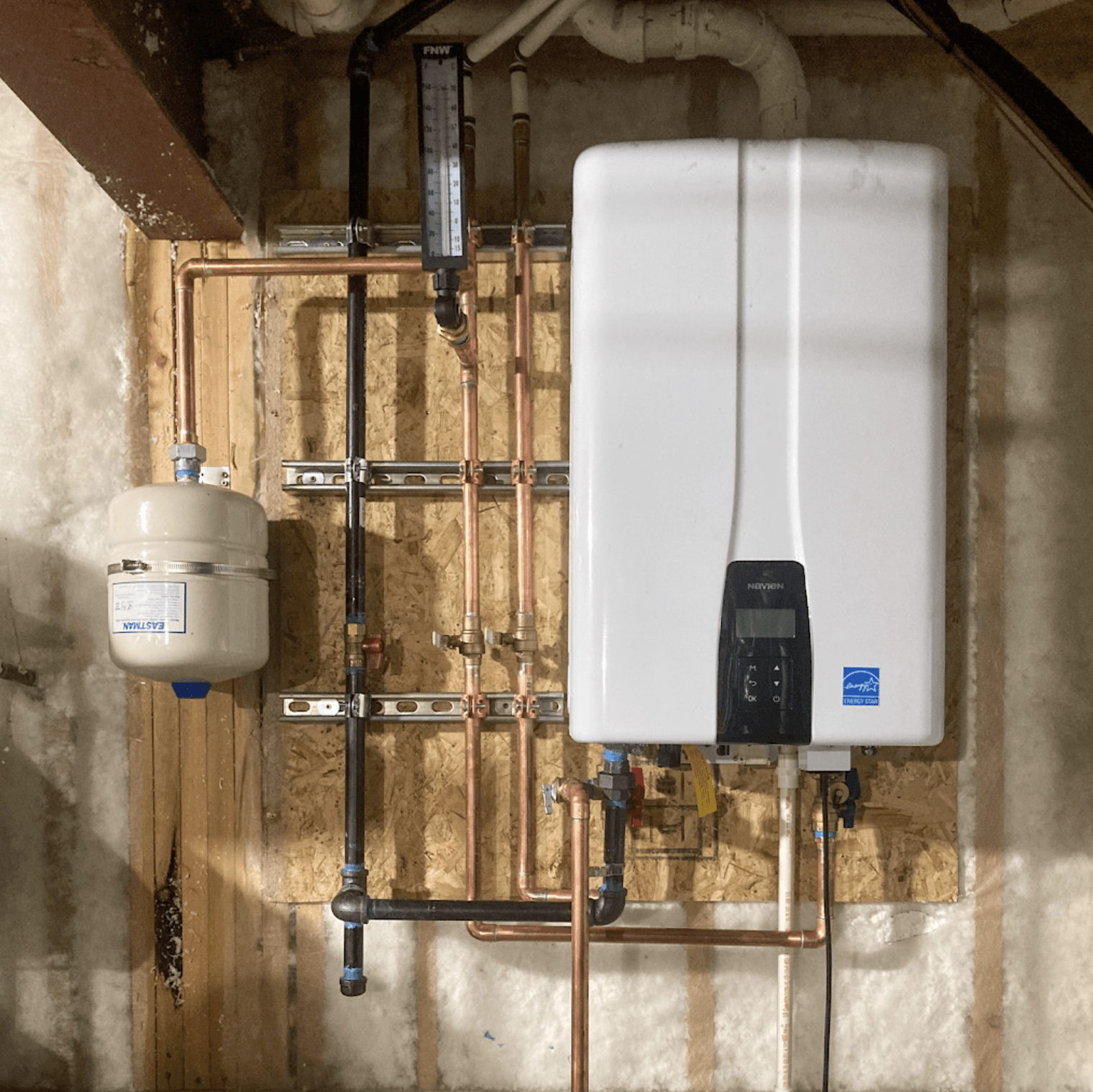

Heat Pump Water Heaters
Heat pump water heaters move heat instead of creating it, allowing for high efficiency.
Heat pumps work similarly to a refrigerator in reverse.
Most heat pump water heaters come as a hybrid unit, meaning they can operate as a heat pump water heater when appropriate. Alternatively, it can operate as an electric water heater when the demand calls for it.
Read more about heat pump water heaters in our blog post!
Solar Water Heaters
Solar water heaters use energy from the sun to heat water. During extended sunshine, solar water heaters can operate 100% efficiently. However, the unit must use a backup to produce hot water when there isn't as much sunlight.
There are two main types of active solar water heating systems: direct circulation systems and indirect circulation systems.
There are also two types of inactive solar water heating systems: Integral collector-storage passive systems and Thermosyphon systems.
Learn more about solar water heaters through the Energy Department website!

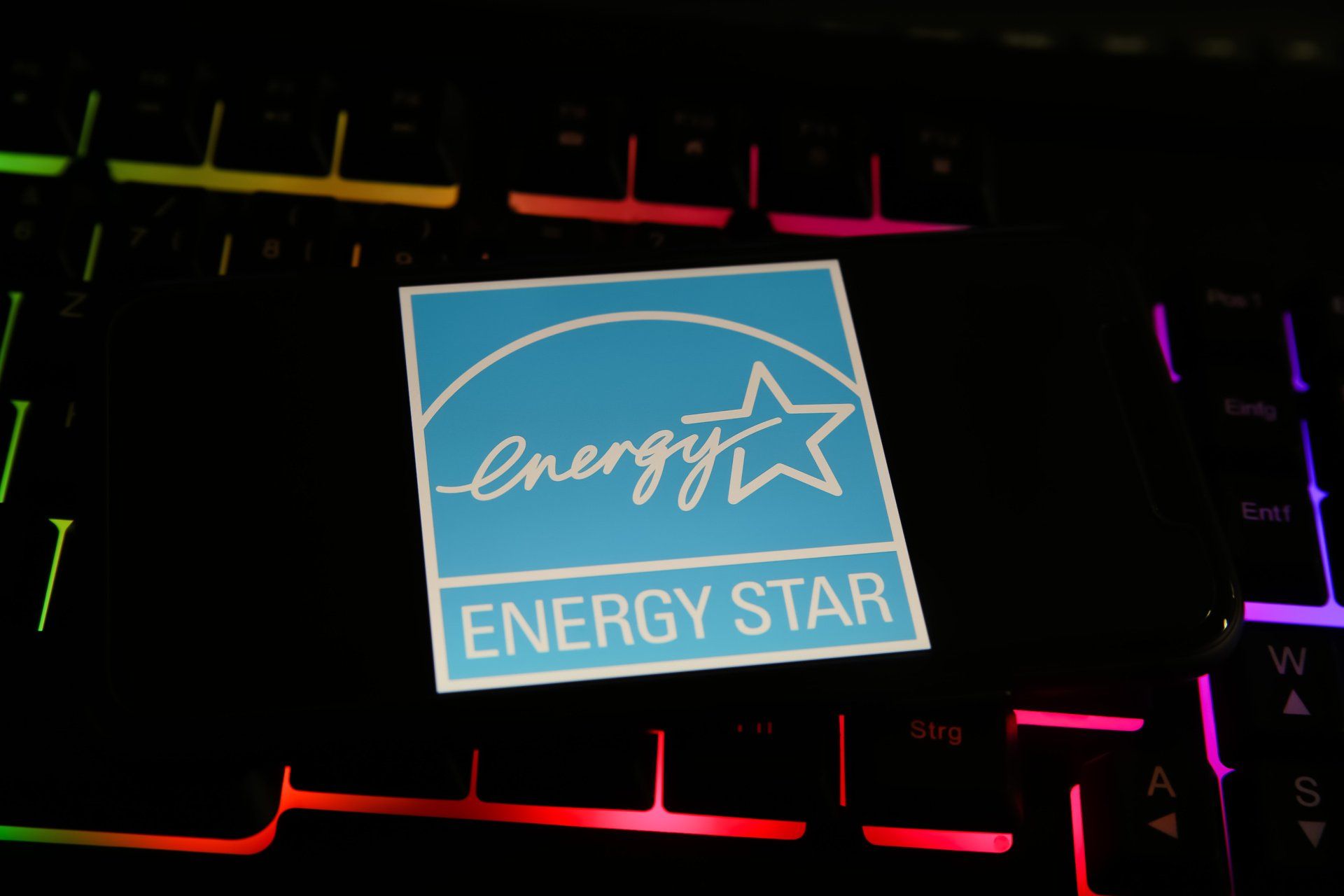
Energy Star Products
In order to guarantee an efficient water heater, you can look for the Energy Star sticker.
The US Environmental Protection Agency grants the Energy Star label to products that run efficiently. Some homeowners may even get tax credits for buying Energy Star products!
Energy Star establishes clear
criteria for water heater products
in order to get the Energy Star sticker based on the type of water heater you have. When the product meets the following criteria, it can display the sticker:
| Water Heater | Minimum UEF |
|---|---|
| Electric Integrated Heat Pump Water Heater | 3.30 |
| Electric Split System Heat Pump Water Heater | 2.20 |
| Gas Storage Water Heater (up to 55 gallons) | 0.81 |
| Gas Storage Water Heater ( 55+ gallons) | 0.86 |
| Gas Tankless Water Heater | 0.87 |
| Solar Water Heater (gas backup) | 3.00 |
| Solar Water Heater (electric backup) | 1.80 |
How Much Will I Save With a High Efficiency Water Heater?
To establish how much you will save, compare your old water heater with your new water heater. The larger the discrepancy between the old water heater’s UEF and the new water heater’s UEF, the more money you will save.
Upgrading to a
tankless heater will save anywhere from 8 - 34%
on water heating expenses.
Energy Star claims that a
heater pump water heater can save as much as $470 per year
for a family of four and $4500 over the life of the water heater.
A
solar water heater can save 50 - 80%
on water heating costs.
The longer you have the new, efficient water heater, the more of a return you will get.
How To Improve Water Heater Efficiency
Follow these simple tips to improve water heater efficiency when you notice your utility bills increasing unexpectedly:
#1. Insulate your water heater and the pipes connected to your water heater
If you have a storage tank water heater, it may experience standby heat loss. Additional insulation will increase the unit’s thermal efficiency.
#2. Turn down the thermostat to the water heater
Most water heaters deliver water at a temperature of 120°F. The higher the temperature, the more energy the unit will need to heat the water. Try turning the temperature down to 110°F.
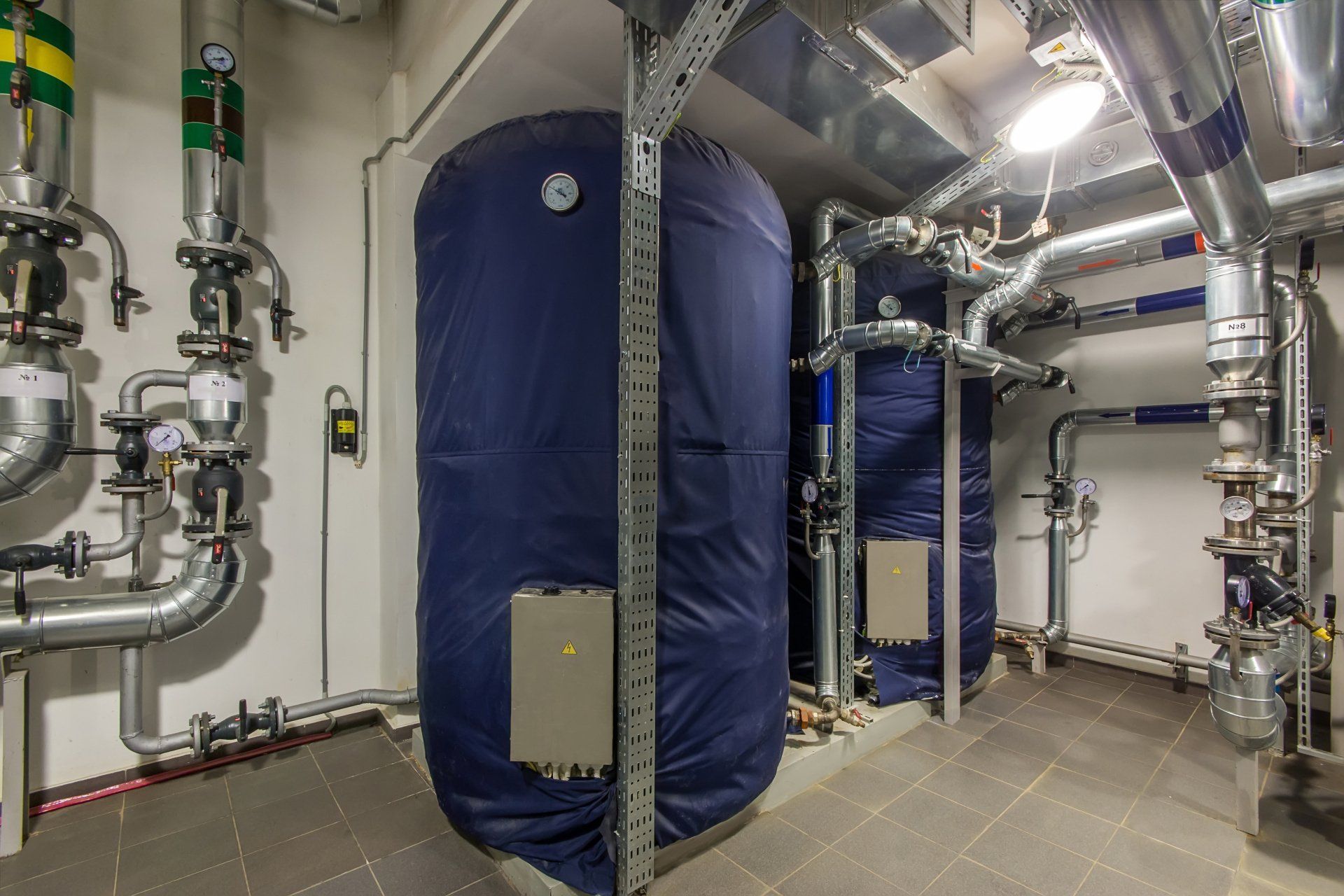
#3. Put the water heater on a timer
Purchase a water heater timer to automate water heater temperatures to reduce the thermostat when away at similar, similar to your whole home smart thermostat.
#4. Get regular maintenance
Sediment buildup naturally accumulates in water heaters. Annual preventative maintenance clears the sediment buildup from the tank, eliminating obstructions that can impact efficiency.
#5. Buy an energy efficient water heater
When it’s time to replace your current water heater, look into energy efficient options. Electric heat pump water heaters, tankless water heaters, and solar water heaters tend to operate the most efficiently.
U.S. Water Heating Solutions
When you’re ready to cut your hot water expenses, we can help!
We at U.S. Water Heating Services offer the following residential and commercial water heater services:
- Water heater installation
- Warranty water heater repair
- Non-warranty water heater repair
- Water heater replacement
- Preventative maintenance
- Boiler services
Contact U.S. Water Heating Solutions
to get a quote today!




